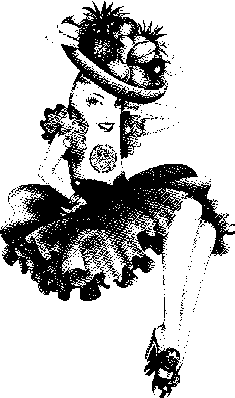Return to About White Crane Journal
As guest editor for this issue I want to begin by thanking Toby Johnson for the opportunity to realize the idea of a food issue for White Crane.
I am a foodie. Food is, quite simply, one of the chief joys and pleasures of my life. And in no small measure, it is a spiritual pursuit. Of course, I am not alone in this. As John Dabell expresses it so succinctly in this issue, "preparation of food is a daily act of transubstantiation that puts me in direct contact with the world of Spirit, if only I have the focus of mind to perceive it."
What could have more to do with spirit than food? What spiritual path doesn't incorporate -- embody -- it's deepest spiritual longings and concepts through the language of food? The early Shoshone people confounded anthropologists because they named their various bands by what they ate: one season they might be Sheep Eaters and the next they might be Seed Eaters, Salmon Eaters, Pine Nut Eaters, Earth Eaters.
Forbidden fruit or animal sacrifice, virtually every spiritual path has at its foundation the eating or not eating of various and sundry plants and animals. Terence McKenna, in the fascinating Food of The Gods, posits that it was the hunter-gatherers happening upon the magical stropharia cubensis mushroom that fills the mythic "missing link" of human development, intellectually, physically and spiritually.

Bread, wine, mushrooms, roots and leaves have always played a central role in the spiritual longings of humankind. From chilis to chocolate our omnivorous eating habits as hominids and our evolving brain with its capacity to process sensory data, were united in the happy notion that food is more than mere nutrition, it is an experience. From there it was a short step to understand that to share food is to be of one body. To share food is to ally and embrace your company. The sin of Sodom was inhospitality &emdash; the neglect of offering sustenance in a hostile environment. McKenna asserts, "Plants have always mediated the human cultural relationship to the world at large." My personal culinary goddess, M.F.K. Fisher, wrote "There is communion of more than our bodies when bread is broken and wine is drunk." Fisher even breaks that bone down to its marrow, "First we eat, then we do everything else."
Eating some foods makes us happy, eating others sleepy, and still others alert. We are jovial, restless, aroused or depressed depending on what we have consumed. I know that to live my life as a balanced, spirited individual, I must learn to find the sacred in the ordinary. To do otherwise is to subscribe to what is a heresy to me and to many gay men and women: that the Physical somehow debases Spirit. We suspect-- we sense--this is not so.
In this Spring 2000 issue of White Crane, when the seeds of our foods are first impregnated in the soil being warmed by the return of the sun, when animals bring forth another generation and the abundance of the Mother Earth greens and blossoms and grows, it is, indeed, fitting that we consider not only what we eat, but how we eat. And with whom.
I'd like to thank Bob Sink for his great graphic design work in this issue.
In this issue, White Crane founder, Bob Barzan muses on the grace of the quotidian, herbalist John Dabell finds a connection between the spiritual paths of voodoo and the radical faeries in spice mandalas, Washington D.C. writer, Dan Stone ponders fasting and Road Scholar Nilos Nevertheless chews on the miracle of that most basic of foods, bread. A fine selection of poetry rounds out our meal, a buffet of variety to please body and soul.
We are what we eat: In this Spring issue, we bring you food for thought and as an amuse guele, food for the body.
A votre santé....bon appetít.
Bo Young, Brooklyn, NY